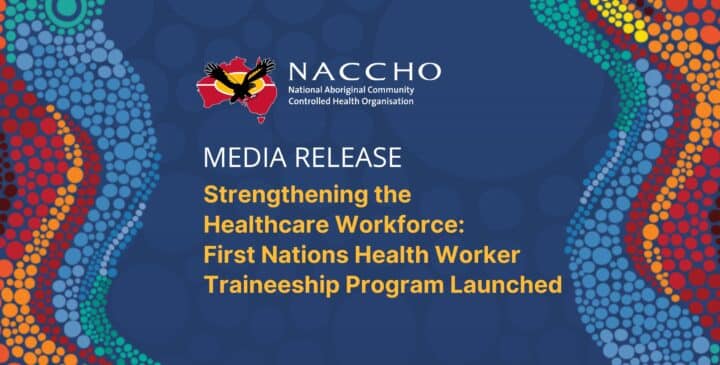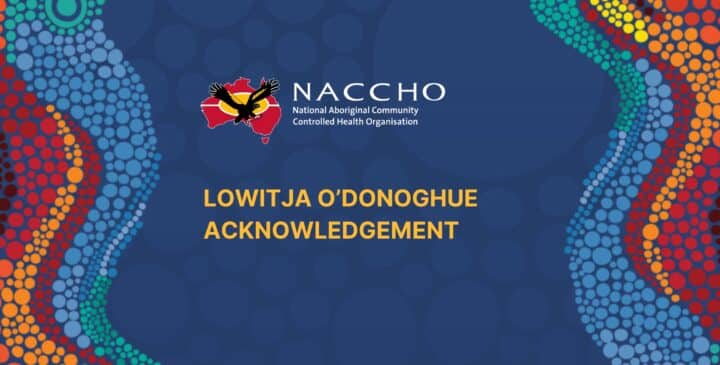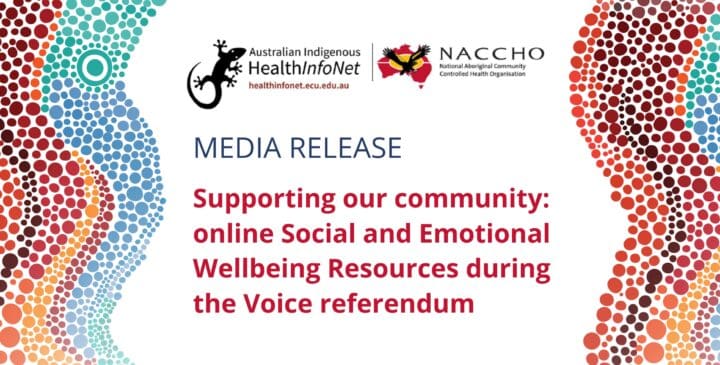

Mabo day highlights need for full constitutional recognition: peak Aboriginal health body
“Constitutional recognition is so important because it is about recognition of Aboriginal heritage, our connection to country and our rights as Australia’s First Peoples.
“Racism, discrimination and a lack of respect and recognition have terrible and lasting impacts on Aboriginal and Torres Strait Islander people’s mental health and social wellbeing.”
National Aboriginal Community Controlled Health Organisation (NACCHO) Chair, Matthew Cooke
The peak Aboriginal health organisation today reaffirmed its support for the full and proper recognition of Aboriginal and Torres Strait Islander people in Australia’s Constitution as Mabo Day is celebrated across the country.
Mabo Day commemorates a landmark High Court decision that removed the idea of ‘terra nullius’ from Australian law, after a decade long campaign for a native title claim by a group of Torres Strait Islander people, led by Eddie Koiki Mabo.
National Aboriginal Community Controlled Health Organisation (NACCHO) Chair, Matthew Cooke, said Mabo Day celebrates a big step towards reconciliation for Aboriginal people but also highlights how far we have to go and the need to remove all discrimination from the Australian Constitution.
“Twenty three years has passed since that historical decision which finally recognised that Aboriginal and Torres Strait Islanders had occupied this land for tens of thousands of years before white colonisation.
“We now need nothing less than full and proper recognition of Aboriginal and Torres Strait Islander people in Australia’s constitution and the removal of all traces of discrimination,” said Mr Cooke.
“Constitutional recognition is so important because it is about recognition of Aboriginal heritage, our connection to country and our rights as Australia’s First Peoples.
“Racism, discrimination and a lack of respect and recognition have terrible and lasting impacts on Aboriginal and Torres Strait Islander people’s mental health and social wellbeing.
“Constitutional recognition, like the Mabo decision and the national apology, would be another step in the right direction towards not just reconciliation but also in closing the gap in the health of Aboriginal and Torres Strait Islander people.
“However, efforts to achieve recognition need time and proper planning, including an extensive education and awareness campaign to ensure all Australians fully understand why recognition is so important.
“It is also critical that constitutional recognition does not prevent or make void any efforts by Aboriginal and Torres Strait Islander people to assert their rights as sovereign peoples or to pursue a treaty.
“The bipartisan support for recognition offers us a real opportunity for us to get this right and ensure the full and proper recognition of Aboriginal people in the Australian Constitution.”

